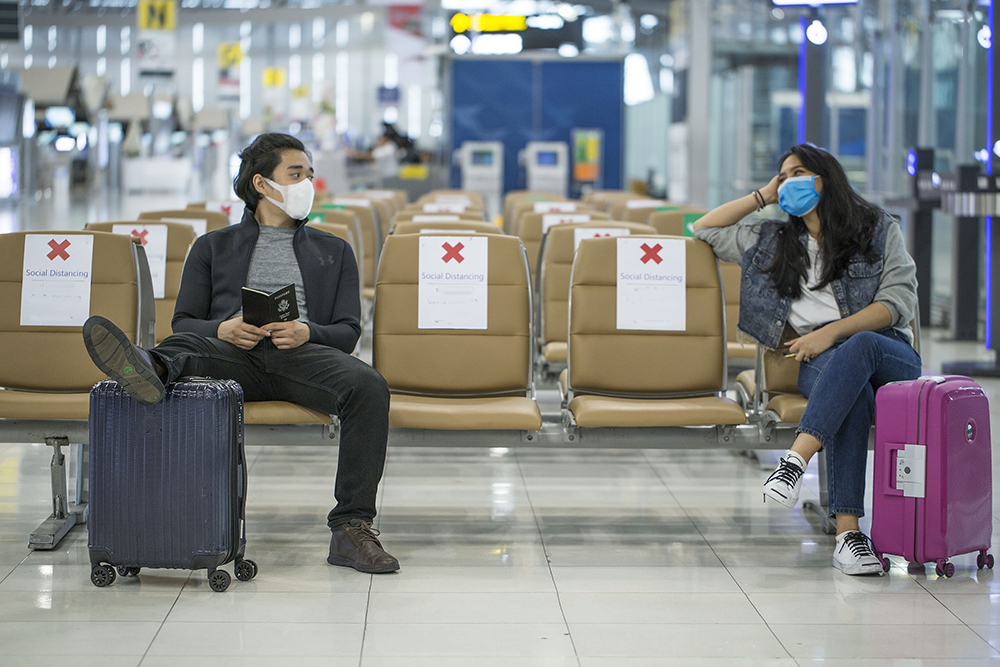

Features
Employee Vacation
Health & Safety
How to manage employees’ travel during a global pandemic
By Kristina Vassilieva
 (supAVADEE/Adobe Stock)
(supAVADEE/Adobe Stock) As the pandemic continues, some businesses may be wondering when it will be safe to resume travel and whether they can send employees on trips for work.
Additionally, workers may begin to resume travel for personal reasons.
How should employers manage these two types of travel while protecting their staff and workplace?
Before planning a business trip, employers must conduct a risk assessment to determine whether it is safe for employees to travel, advises Kiljon Shukullari, HR advice team lead at consultancy Peninsula Canada.
Advertisement
Employers should assess risk down to the neighbourhoods they will be visiting, even if the country has lifted travel restrictions. Travelling to destinations with a high number of new cases should be avoided entirely.
How should employers approach travel for business reasons?
If it is safe to travel, employers must find out whether a quarantine is mandatory upon arrival and account for this when making plans.
Additionally, employers must consider employees’ individual circumstances and avoid sending employees on work trips in the following circumstances:
- if the employee is at risk of complications if they contract COVID-19, due to having existing medical conditions
- if the employee has at-risk family members in their household, or dependents who rely on their care, and they would not be able to safely self-isolate upon their return home
- if the employee has expressed concern and is not comfortable travelling for work at this time.
Can employers restrict employees’ personal travel?
Some employers may also be wondering whether they can restrict employees’ travel during COVID-19.
“The general answer to this is, no; employers cannot dictate to employees how they may spend their vacation days. However, they may require workers to quarantine the recommended period post-travel in order to ensure health and safety in the workplace,” says Shukullari.
In order to avoid HR dilemmas, the best way to handle vacation requests and employees’ travel is to update your policies, he says.
“Company policies should highlight everyone’s shared responsibility in maintaining health and safety in the workplace,” says Shukullari. “As such, employers may require employees to notify them of travel plans that will require self-isolation upon their return.”
“Employers should stress that although the employee does not need to report their detailed travel plans, enough information needs to be provided in order for the employer to plan a safe return to work for the employee and everyone else in the workplace.”
It is important for these policies to apply equally to every worker in order to avoid potential discrimination claims and staff should be notified of policy changes before they start travelling.
An employee failing to follow health and safety guidelines at work may lead to disciplinary action, he says, potentially causing friction in the workplace and resulting in legal action being taken.
For this reason, it is vital to have policies that demonstrate that the employer has done their due diligence to justify their actions.
Do employers have to pay employees during quarantine?
Employers are not required to pay employees during their quarantine period. If an employee is off work for any reason related to COVID-19, they may be on a job-protected unpaid leave.
The name of this leave and requirements vary by jurisdiction and employers should check for the latest updates on this in their province.
“Employers may provide pay if they wish as an additional benefit, however they are not required to do so by the law. If employees are entitled to paid sick leave, employers can suggest they use this during their quarantine period as an alternative,” Shukullari advises.
Kristina Vassilieva is an HR writer at Peninsula Canada.
Print this page